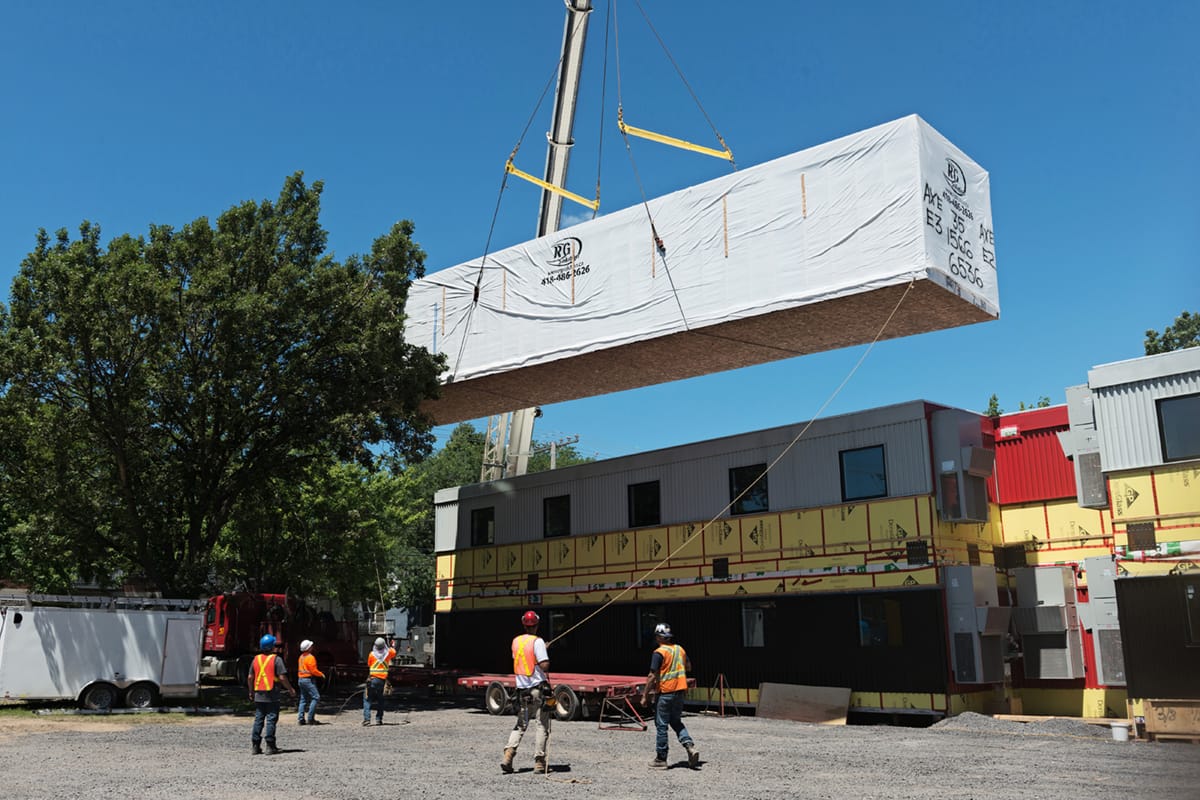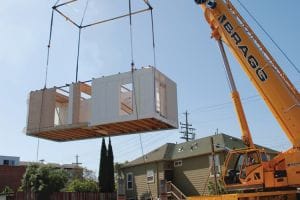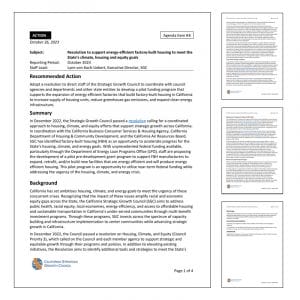A Huge Win for the Modular Construction Industry in Massachusetts
In early February, the Massachusetts Board of Building Regulations and Standards (BBRS) released its proposed 10th Edition building codes. This draft included several amendments targeting modular construction that would have created an extremely difficult environment for the entire modular industry and could have eliminated the industry entirely in the state.
The BBRS amendments included:
- Requiring manufacturers to obtain a Manufactured Building Certificate by taking a class that doesn’t exist yet;
- Requiring modular set crews and general contractors that do modular on-site work to obtain a Manufactured Buildings Installer Certificate by taking another class that doesn’t exist yet;
- A provision to require the set crew to shut down a project if a “perceived” code violation is noticed, and to call a registered design professional to get a written report on how to address the issue;
- New quality assurance manual requirements;
- New manufacturer certification requirements;
- New more stringent labeling procedures; and
- New more stringent labeling records.
MBI immediately crafted a multifaceted strategy to defeat these amendments. Lead by its Government Affairs Director, Jon Hannah-Spacagna, and its Executive Director, Tom Hardiman, MBI worked with members to provide written comments to the Board in opposition to the proposed changes and both Hannah-Spacagna and Hardiman testified during the public hearings.

Additionally, MBI worked with its lobbying firm, Squire, Patton, Boggs, to connect with the Governor’s office to gain support for the industry. The Governor then spoke with the modular program administrator to voice our concerns over these new regulations. “When we have serious threats to our industry from a regulatory or legislative situation, we have to work every angle to have the best chance of a positive result,” said Hannah-Spacagna.
During the BBRS hearing on April 9, the Board discussed the proposed amendments as well as the public comments it received. The Board mentioned this topic received more public comments than any other and even referenced MBI and many of our members specifically in their summary of the comments.
Ultimately, the Board voted unanimously to reject all the amendments related to modular and to revert to the 9th Edition language moving forward. However, they do plan to form a study group to discuss the amendments but committed to include representation from the modular industry in this group. Jon has already contacted BBRS Chairman, Richard Baldacci, and offered to serve on this study group.
As our industry continues to grow, the industry will see more attacks like this. We ask that you support our MAP program so we’re able to project our industry. The most significant attacks to our livelihood are the ones we don’t know about yet. So, we must be prepared to act quickly when these issues arise.
Additional Government Affairs Articles
FEMA Announces Hawaii Housing Plan Using Modular Construction
Utah becomes the second state in the country, following Virginia, to fully adopt ICC/MBI standards 1200 and 1205. MBI will continue to work with leadership in Utah to implement the new program.
Read Complete ArticleICC/MBI Standards 1200 & 1205 Provide Foundation for Utah’s First-Ever State Modular Program
Utah becomes the second state in the country, following Virginia, to fully adopt ICC/MBI standards 1200 and 1205. MBI will continue to work with leadership in Utah to implement the new program.
Read Complete ArticleBuilding at the Intersection of Housing Affordability & Energy Conversation
Tasked with looking at how the state of California can best house its growing population while meeting its aggressive energy, housing, transportation, land use, and equity goals, the California Strategic Growth Council (SGC) faces a slew of challenges. But, if the outlook of SGC Executive Director Lynn von Koch-Liebert is any indication, it’s only a matter of time before those challenges are successfully met.
Read Complete ArticleMBI Defeats Davis-Bacon Expansion
The Modular Building Institute, with the support of its members, has defeated the US. Dept. of Labor’s Davos-Bacon Act expansion, and the stakes for the modular construction industry could not have been higher.
Read Complete Article



